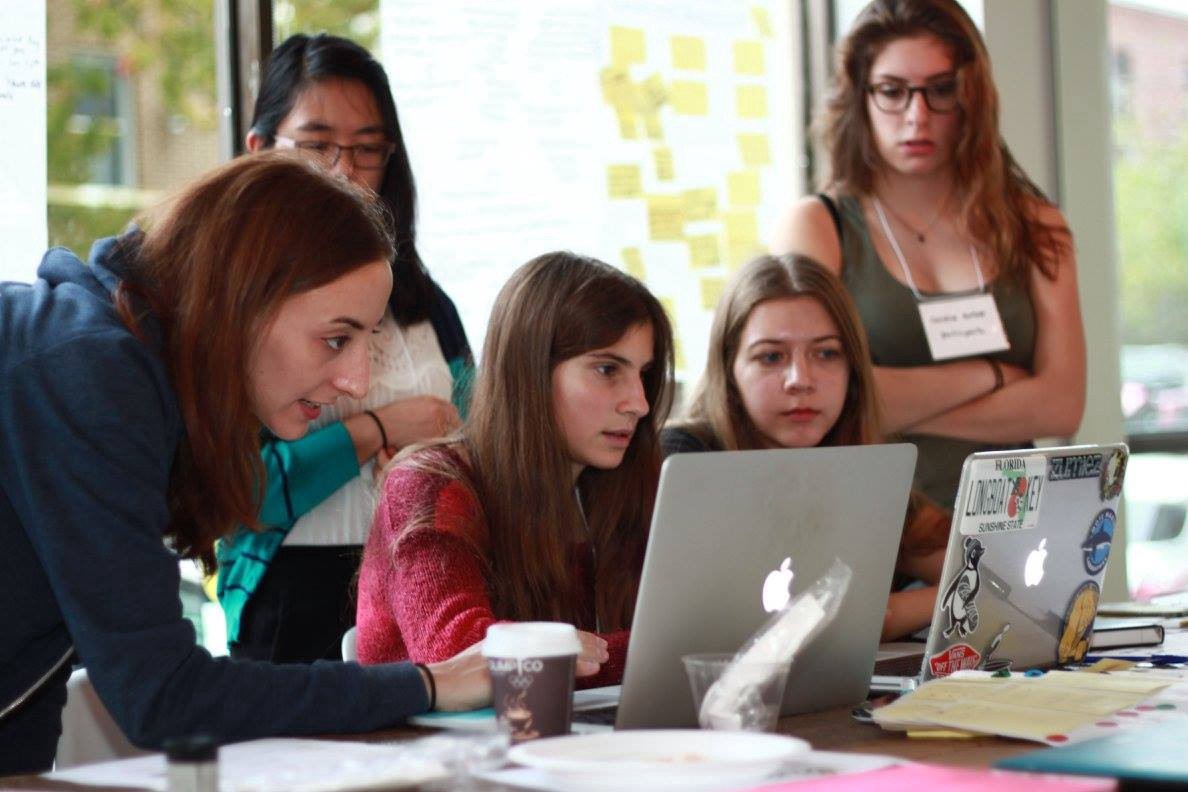Alessia Bellisario shows us that coding is fundamentally about real-world problem-solving, and has hope for where it can go next.
She makes beautiful, personalized spaces come to life in urban landscapes, and shares her passion for programming for the better. She talked with us at HelloFlo about her experiences as a full stack engineer at Breather, and her inspirations and interests for the tech industry.
What do you do for a living, and why is it awesome?
I’m a full stack developer at Breather: we’re a network of meeting rooms and private work spaces across the US, Canada and the UK that you can book and access on-demand with our mobile or web apps. It’s pretty magical the first time you book a Breather. One minute you’re walking around New York or Chicago and the next you’re in a quiet, beautiful space with WiFi and phone chargers that was thoughtfully designed by our team. You unlock the door with your phone, take a call, get some heads down work done or meet with colleagues, and when you’re done you just close the door behind you.
Being a programmer, and a programmer at Breather, is great for a whole host of reasons, but two stand out. Programming as a praxis is something I enjoy because it’s fundamentally about problem solving, and in the context of building consumer software it involves modeling some part of the real world as a series of discrete logical statements. It’s a really creative process that forces you to grapple with your assumptions. As a programmer at Breather, the company’s mission—to change the way people access commercial real estate and drastically lower the transaction cost through technology—is really interesting to me as someone who cares about cities and the demands of the modern workforce.
What first got you started as a developer?
I studied philosophy and political science at the University of Toronto. While in school and working various odd jobs (librarian assistant, Airbnb photographer, assistant to a Toronto city councillor) I did freelance web development on the side out of sheer enjoyment. One of my favorite designers, Jessica Hische, coined the term “procrastiwork”—the work you do when you should be doing other work—and that’s always what making things on the web was for me until I starting doing it full-time. In my role at Breather, I work on our web app at breather.com which is full stack JavaScript: Backbone/React on the front end and Node/Express on the back end.
Do you have any advice for other women who are passionate about getting more involved in code?
If you love it, go for it, and if you’re curious about coding, find a workshop or an online class and jump in. I’m lucky to have such supportive family and friends, but I remember how stressful it was to contemplate pivoting into a career as a developer after studying philosophy for four years.
It’s a textbook example of loss aversion/the sunk cost fallacy, but because we’re talking about programming I’m going to make a different analogy. There’s a famous problem in computer science called the hill climbing problem: it’s difficult to write an algorithm that brings you to the highest peak in a simulated landscape if you can’t see the whole picture. Most strategies (e.g., ensuring that every step brings you higher than your last position) will quickly bring you to the second- or third-highest peak. It’s really easy to climb the wrong hill. Investing a lot of time in a new skill in a completely new field can feel like taking steps backward if you’ve already set off on a different path, but if you love programming, there really is no better time to start climbing the right hill.
What are your hopes for your future and the future of tech?
For my part, it’s relatively simple: I hope I get to keep working on interesting problems with people I enjoy working with. The question of the future of tech is only slightly harder to grapple with, but I hope it involves vastly more women than the current reality. There’s so much work to be done but there are so many people committed to making it happen, so I’m hopeful.
This past year, a colleague of mine, Christine, and I mentored a team of 16-year-old girls in something called the Technovation Challenge, a global competition sponsored by Google. Teams of girls ages 10-18 are tasked with building a mobile app or prototype that solves a problem they see in their community. I’ll be mentoring another team this year, but my experience last year had a pretty profound impact on me. There is infinite potential in this generation of young women and technology is just one tool they’ll have at their disposal to address the problems they deem important and worthy of their time.




comments